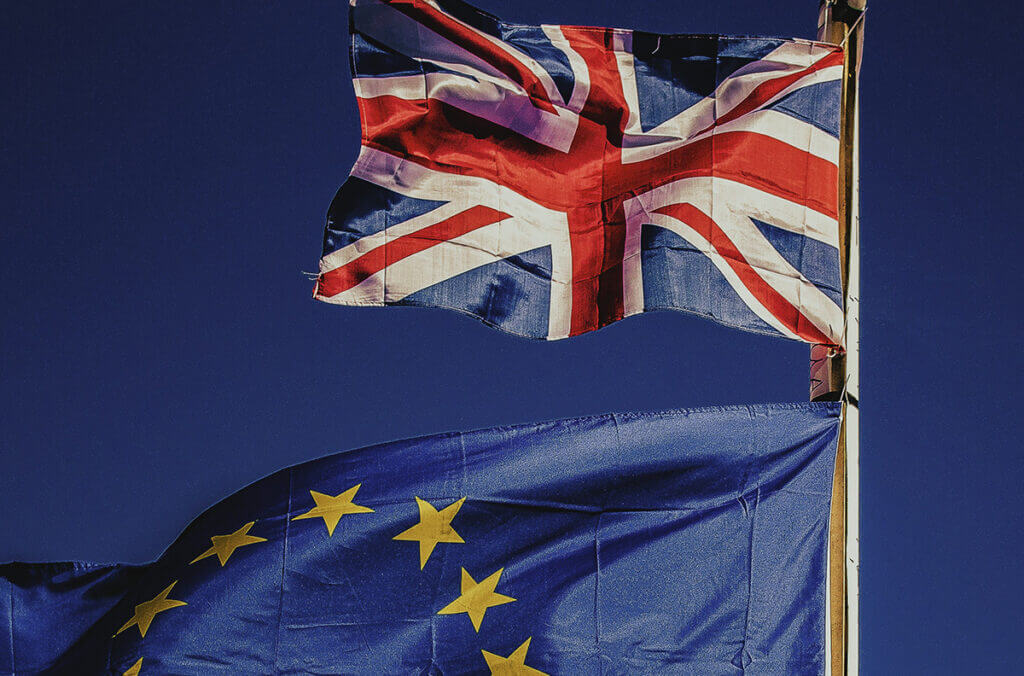Brexit News and FAQ: What you should know about Brexit
With the UK leaving the EU, there have been many changes to shipping to and from the UK – most recently with the introduction of full UK import controls for goods imported from Europe from January 2024. The consequences of Brexit for German companies exporting include customs formalities and higher costs, as well as longer transit times. In our Brexit Shipping FAQ, we answer the most important questions and keep you up to date with all the Brexit news relevant to your shipping.

What changes in the shipment of goods have resulted from Brexit to and from the Great Britain?
As a result of Brexit, the UK is no longer part of the EU customs union. Consequently, there is no longer free movement of goods and British goods imported into an EU country must therefore undergo the regular import customs process and all the required customs declarations and documents must be submitted. In addition, the EU will levy the regular import VAT on imports from the UK.
Please note the following when preparing your shipment:
- You need correctly completed customs documents. Please make sure you inform yourself in good time before sending your shioment.
- Longer delivery times and additional costs may be incurred due to customs clearance
- Additional customs documents and inspections are required for certain product groups (animal and plant products)
- Whether there are any restrictions on goods shipments from the UK due to Brexit
Brexit News: From 1 January 2024, the new Border Target Operating Model (BTOM) will also be introduced on the British side and the last exemption provisions for imports from the EU will be lifted by the end of 2024.
Will it take as long to send to and from the UK as it did before?
Shipping companies always endeavour to deliver all shipments to the recipient as quickly as possible. However, due to the customs clearance that is now required, there are repeated delays in imports to the UK. Most recently, in spring 2024, traders had to accept delays in the introduction of documentary and risk-based identity and goods controls for animal products, plants, plant products and food of non-animal origin through the UK.
We recommend that you always check for express delivery when sending to or from the UK.
Are customs duties and taxes payable?
All goods that have been manufactured entirely in the EU or the UK or that comply with the agreed rules of origin are duty-free. However, for this to be the case, the consignor must comply with a few customs formalities. Companies that export from the EU to the UK must, among other things, enclose commercial invoices with information on the type and value of the goods for the customs authorities. This enables customs officers to assess whether the goods can be imported or exported into a country at all and what controls, if any, are required. It is essential to provide an invoice with the correct information, as this reduces the potential for delays.
What customs-related information and documents are required?
Commercial Invoice
A commercial invoice or pro forma invoice is required for all commercial shipments. This mandatory customs document provides information about the contents and value of the package and contains other relevant information, such as which party pays the customs duties. Invoices that are incorrectly issued or missing can lead to transport delays and additional costs.
A commercial and pro forma invoice must always include the following:
- Full address and contact details of the importer and the sender
- A different delivery address if applicable
- EORI number of the sender and the importer
- HS code
- Date, number and place of invoice
- Description and quantity of goods with customs tariff numbers and values of goods
- Weight
- Declaration of Origin if applicanle
You can find further information on how to fill out a commercial or pro forma invoice correctly and a template in your customer account.
You don’t have a customer account yet?

Just ask us personally
Shipping requirements in companies are often complex and time-consuming. A task for which you can count on our support. Contact us today and find out more about our shipping services for B2B customers!
Declaration of Origin
The trade agreement between the UK and the EU, which came into force on 1 January 2022, provides for preferential treatment of certain imported goods originating in the UK. These are exempt from customs duties when imported into the EU. However, this only applies to goods that comply with the rules of origin set out in the agreement.
To take advantage of the preferential treatment, consignors must include a declaration of origin on the commercial invoice. You can find more information on preferential treatment and declarations of origin in our blog article ‘Diagonal cumulation’.
EORI number
The EORI number (Economic Operators’ Registration and Identification) is a requirement of the European Union for companies that import or export goods to and from the customs union. If you have already traded outside the EU, you will already have an EORI number. If you have only been active within the EU so far, you now have to register for it.
Customs tariff number
Consignors must state the corresponding customs tariff number on the customs declaration and on the commercial invoice. The customs numbers are used to classify and categorise goods. Customs officers can use them to determine the applicable duties and taxes. The European customs administration maintains a database in which customs tariff numbers can be accessed. However, these are for guidance only and are not binding on customs officers. In order to have more certainty and clarity, it may be advisable to request binding customs tariff information.
Brexit News: Exceptional case of Northern Ireland
Unlike the other parts of the United Kingdom, Northern Ireland is also leaving and belongs to the customs territory of the United Kingdom, but will continue to be treated as if it were still part of the customs union. After the original agreement had never been fully implemented due to different interpretations, the EU and the United Kingdom concretised the customs conditions for the movement of goods in the Irish Sea between Northern Ireland and Great Britain through the Windsor Framework of 27 February 2023. The original agreement provided that all goods imported from Great Britain to Northern Ireland would have to be checked beforehand according to EU standards. Now, customs relief procedures apply to goods that remain in Northern Ireland and do not enter the EU single market. Furthermore, regulations on VAT and excise duties, the protection of food, animals and plants, and pharmaceuticals have been adapted. However, nothing changes for shippers from the EU:
- no customs declaration necessary
- normal VAT handling
